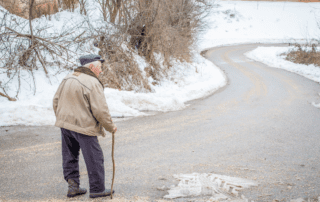Navigating the Digital Age: Protecting Seniors from Elder Abuse in the AI Era
Scammers are increasingly using artificial intelligence (AI) to target unsuspecting individuals, particularly seniors, in various scams such as impersonation, phishing emails, and tech support fraud. Seniors face challenges due to digital literacy gaps and reliance on technology for essential services. To protect against AI scams, individuals should confirm before acting on requests for money or personal information, secure their accounts with strong passwords and two-factor authentication, pause and reflect before responding to urgent requests, recognize warning signs of scams, stay connected and informed through workshops and trusted resources, and spread awareness about digital safety. With the right tools and knowledge, individuals can navigate the digital age confidently and protect themselves from AI-driven scams.










